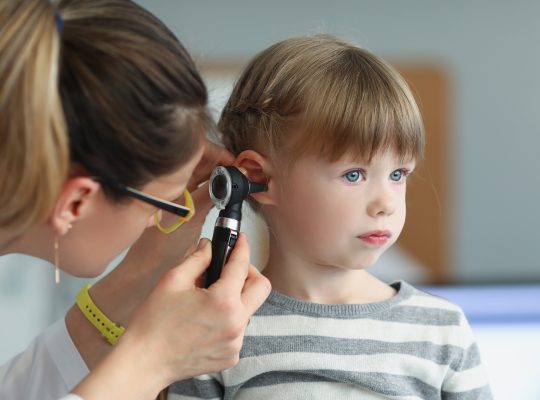With hearing problems, many people automatically think of complete deafness. To someone who no longer hears anything at all, and is completely dependent on gestures or aids. But did you know that hearing loss comes in many forms and degrees? That for some it is mainly the missing of high-pitched sounds, while others have difficulty understanding in noise?
In this blog, we explain why hearing loss is not the same as being deaf, and why it is important to recognize that difference. Both for those who experience hearing loss and for those around them.
Hearing loss: a broad concept
Hearing loss is an umbrella term for (partially) impaired hearing. This can manifest itself in a variety of ways:
- Difficulty understanding in company
- Not hearing high-pitched sounds, such as birds or children’s voices
- Having to turn up the TV
- Missing conversations in noisy environments
- A dull or full feeling in one or both ears
In many cases, people can still hear, but no longer hear enough to follow conversations well – especially when there is background noise or when people speak softly. This can be very tiring, and lead to misunderstandings or social withdrawal.
Deafness: complete or almost no hearing
Deafness usually means that a person hears (almost) nothing, even with a hearing aid. Some are born deaf; others lose their hearing through illness, medication or damage. Many deaf people use sign language or mouth reading to communicate.
So there is a big difference between someone with severe hearing loss and someone who is deaf. And that difference is important – not only medically, but also socially.
“But you hear me, right?”
People with hearing loss often face misunderstanding. “You can hear when I’m behind you,” or “You just heard the doorbell.” But hearing loss is often not a question of all or nothing. Some still hear low tones well, but miss speech frequencies. Another hears sounds only when they are close and loud. That makes it confusing for those around them – as well as frustrating for the person themselves.
Compare it to blurry glasses. You can still see something, but the details are gone. Sometimes it seems like you do see well – but that’s because you have just enough light or contrast. It works the same way with hearing loss.
The impact of hearing loss
Those with poorer hearing have to work harder to follow conversations. This requires a lot of concentration and energy. We call this listening effort. Result: faster fatigue, irritability or difficulty in long social situations. And because not everyone sees that you have hearing loss, people quickly think you are uninterested – or stupidly not paying attention.
That’s why many people withdraw. Not because they don’t want to participate, but because listening exhausts them. Or because they are afraid of misunderstanding something. This sometimes causes unjustified social problems or loneliness.
Hearing loss is invisible
An important difference between hearing loss and deafness is visibility. Someone who is deaf often uses sign language or aids, and is aware of their situation. Hearing loss, on the other hand, is often invisible. Many people stay with it for a long time without seeking help – as long as seven years on average!
This is partly due to shame (“I don’t want a hearing aid”), but also because hearing loss happens gradually. You get used to it. Until suddenly you notice you couldn’t hear the doorbell. Or not understanding the grandchildren properly anymore.
Why a good conversation helps
Open communication is the key. Wondering if someone has hearing loss? Then ask quietly. And do you experience it yourself? Be honest with those around you. Many people are quite willing to consider your hearing – if they know something is going on.
Tips for the area:
- Speak clearly, but do not exaggerate
- Look at someone when you talk
- Avoid chatter or choose a quiet place
- Repeat or summarize without irritation
For those who experience hearing loss:
- State it (e.g., “I can’t hear you well, can you repeat?”)
- Consider a hearing test or hearing aid
- Look for practical aids, such as subtitled telephones or ringers
Hearing loss and assistive devices: many things are possible
Thanks to technological advances, many things are possible today. Hearing aids are small, powerful and often barely visible. There are also hearing amplifiers as an interim solution, or aids for TV, telephone or group conversations.
Having doubts about hearing aids? You’re not the only one. But remember: a hearing aid doesn’t make you old or different – it actually gives you back freedom. Just as glasses improve your vision, a hearing aid strengthens your connection to the world around you.
Summary
Hearing loss is not the same as being deaf. It is often invisible, insidious and confusing – both for the person themselves and those around them. Yet much is possible with the right tools, adjustments and open communication.
Do you feel like your hearing is getting worse, or do you notice it in someone close to you? Take it seriously. Because being able to hear well also means being able to participate well.
Need help with hearing protection or want to know what’s right for you? In our webshop you will find everything from hearing amplifiers to hearing protection. And of course we are happy to give personal advice, feel free to contact us.








